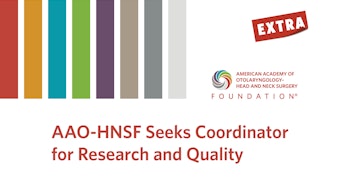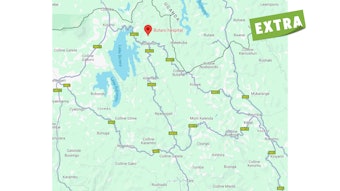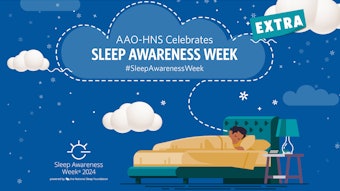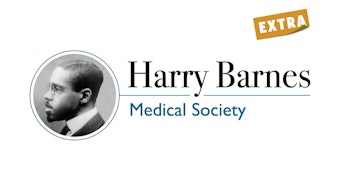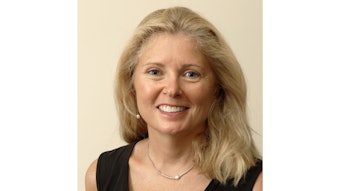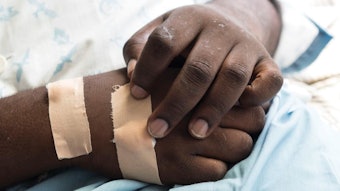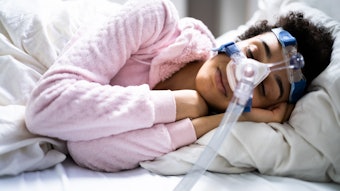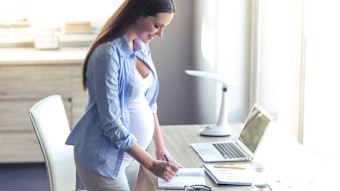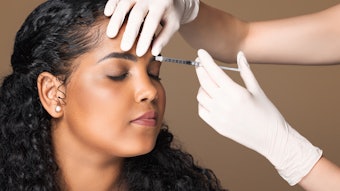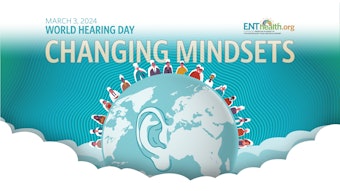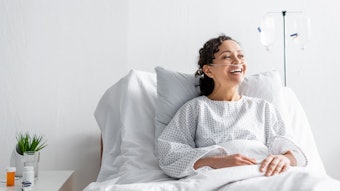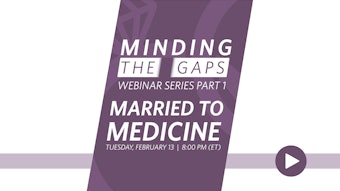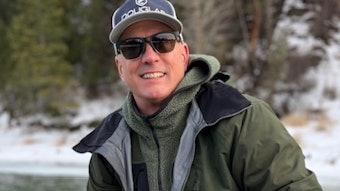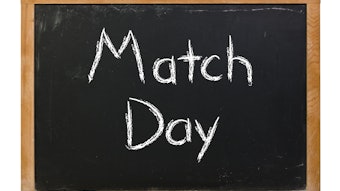Stuck in the Hospital during the Buffalo Blizzard of 2022: A Resident’s Experience
Mattie Rosi-Schumacher, MD, shared her experience during a once-in-a-generation blizzard that dropped more than 50 inches of snow on Buffalo.
Mattie Rosi-Schumacher, MD, Beatrice Bacon, BS, and Michele M. Carr, DDS, MD, PhD
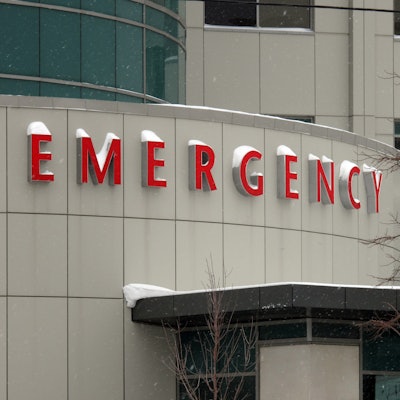
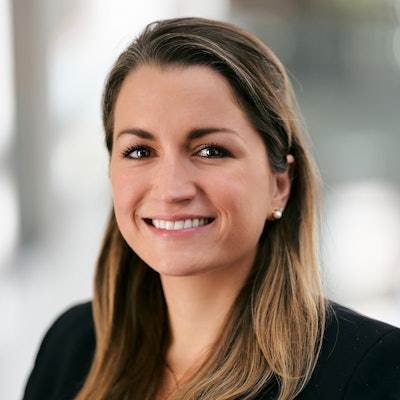 Mattie Rosi-Schumacher, MD
Mattie Rosi-Schumacher, MD
Medical student Beatrice Bacon, BS, and Michele M. Carr, MD, PhD, professor at the University of Buffalo, Department of Otolaryngology, interviewed Dr. Rosi-Schumacher about her experience.
Q: You were stuck in the hospital during the blizzard. How did that happen?
On December 23, everyone was talking about a big winter storm coming into town but—in classic Buffalo fashion—no one seemed too worried. Several hospitals canceled their elective cases for that day but not the hospital I was covering at the time. We had multiple surgeons and I was surprised that all the patients showed up.
By 1:00 p.m., we had finished up in the OR. Not being near any windows, we had no idea what was happening outside. My chief resident, one of our attendings, and I all left the hospital around the same time. I was following another car out of the parking garage, but immediately after getting out onto the street I couldn’t see anything. The blowing snow caused a complete whiteout. That was very scary; I had never seen weather conditions like that before. So, I immediately turned around and went back to the parking garage. Even though I hadn’t gotten very far, finding the entrance to the garage again was difficult.
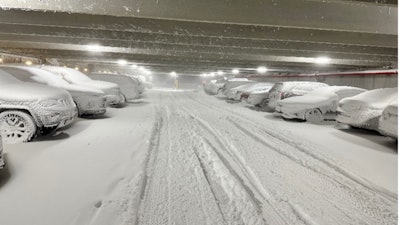 The hospital parking garage during the blizzard.
The hospital parking garage during the blizzard.
Later, our chief resident called and said his drive had been so bad he used Google maps like a roadmap because he couldn’t see the road. Our attending ended up getting stuck in a snowbank on the side of the highway for almost two days because no emergency services could navigate the roads during the blizzard.
The hospital mandated essential staff to stay and there was a driving ban implemented in the city for nonessential workers. One worker who came in for her shift miraculously made it to the parking lot, but then got lost in the parking lot because she couldn’t see the hospital right in front of her. We couldn’t send people out to help because they couldn’t see either.
Q: What did you do while in the hospital?
I hadn’t planned to stay at the hospital and didn’t have a bag packed. If I’d had one, that would have been a game changer.
There were a lot of staff stuck in the hospital and everyone tried to figure out where they would sleep. We used the carts from PACU and clinics. As more and more people got stuck in the hospital, the beds were claimed. So, people were sleeping on the floor and in the waiting rooms. The hospital rationed food because they were obviously not getting any deliveries. There were designated times you could eat, and they gave you one serving of whatever it was they had on offer: one muffin, one orange, one yogurt, one piece of lasagna. You couldn’t buy anything else; so, whatever they gave you was all you had to eat. But everyone, staff and visitors, were fed the same.
I wasn’t getting many consults because there was no one coming into the hospital. I had one inpatient epistaxis consult and we had a couple of patients admitted that were there over the weekend. I spent some time with one of our head and neck oncology patients who had dysphagia, helping him with feeding. I was called in the middle of the night about a patient on my service who had increased neck swelling. As I made my way upstairs to see him, I thought, “I hope this isn’t something serious that needs to go to the operating room,” because none of my attendings were in-house. However, I’m sure one of the other attending surgeons who was there would have helped if needed.
During the day, we hung around in the lounge because there was nothing else to do. Some people were getting more anxious every day, wanting to go home, mostly people with kids, especially as it got closer to the Christmas holiday. Other people were more relaxed and just accepted that we couldn’t do anything about it. Some of the stranded people made a Christmas tree out of construction paper and put it on the wall, and we all decorated paper ornaments to put on it. One of the OR techs found a big jar of pickles that the cafeteria let him purchase—it must’ve been the last thing there—and he was sharing those with everyone. There were some lighthearted moments.
Q: What were the hardest parts of this experience?
Every day we woke up hoping to be able to leave but we would take one look out the window and know that there was no way. The city still had a driving ban in place, too. That was the hardest part of each day. I had planned to travel home for Christmas; my sister who was living abroad was coming home and it was the first time everybody was going to be home. That was a big disappointment.
The neighborhoods surrounding the hospital began losing power so a lot of people from the community came to the hospital looking for a place with power and heat. Most didn’t have proper winter clothing and fought the blizzard to get there. A lot of them had hypothermia. The hallways started to fill up. Whole families settled into the clinic waiting rooms and slept on the floor or sitting up in chairs.
At one point, I ran into a hospital employee crying in the elevator. She said that she had three kids at home alone and the power had gone out at their house. One of the girls was charging her phone in the car and when she didn’t come back for a while, her siblings went out to find her and thought she had carbon monoxide poisoning. The siblings were trying to help her by opening the windows but there was no heat and they were alone. The employee was distressed, asking, “How am I gonna get home to them?”. But, of course, there was no way for her to get back. There wasn’t much I could do but say, “I’m so sorry,” and offer a hug.
I was finally able to leave on Christmas day, after a three-day hospital shift. Despite having gone out to the parking garage to start my car every day, wouldn’t you know that the battery was dead when I went to leave. I got a ride home, except that we couldn’t get to my house because the street wasn’t plowed and there was a tree down blocking the road. But I was determined to get into my house and mostly desperate to get some of my personal belongings and a change of clothes. We pulled up on the street behind my house, and I climbed over a fence and retaining wall in the snow to get to my backyard. The power was still out at my house and the apartment was freezing cold so I ended up staying at a friend’s house for the next few days.
Q: Do you have any advice for others based on this experience?
What I learned from this is to take the warnings that they give on the news seriously and prepare accordingly. Prepare both your house and your car with groceries and supplies. The hospitals learned that too because this year they’ve been emailing out preparedness instructions. Keep an emergency bag in your car. Have your chargers, a change of clothes, a change of undergarments, your toothbrush, your toiletries, a towel, a blanket, some nonperishable snacks, and water.
I’m from New York so I never considered myself to be afraid of a snowstorm but now storms make me a little nervous. I feel responsible for my patients but also for my own safety—that can be difficult to navigate. It might mean staying at the hospital when the weather is bad even though I don’t have a consult to see. It might mean saving the consults for a few hours so they can be seen together if the weather is predicted to improve. I’ve advised our junior residents to consider these possibilities and be prepared. When residents are in these emergency situations, program directors should find out what the front-line staff are experiencing and support them however they can.
I don’t think I ever truly understood what a blizzard was until experiencing total whiteout conditions when I tried to drive away from the hospital that day. Looking back, I consider myself lucky to have been stuck in a place with electricity, heat, and food. If I had gotten stuck in my car on the side of the street or in my apartment without power, it could have been much worse.
